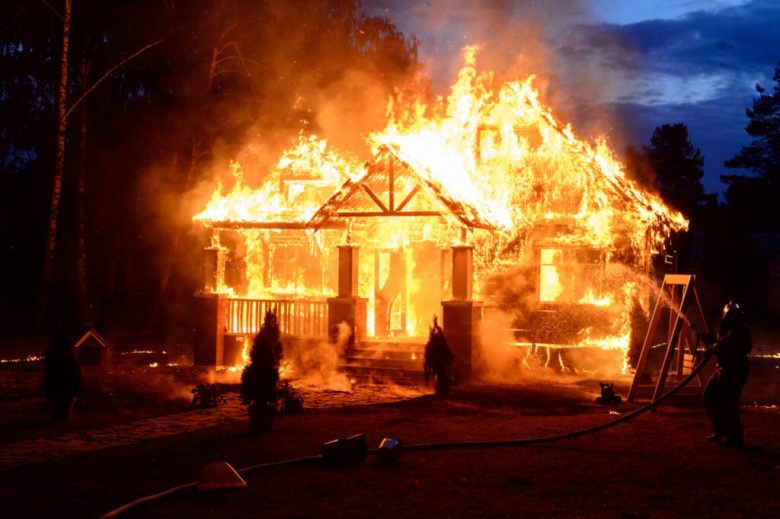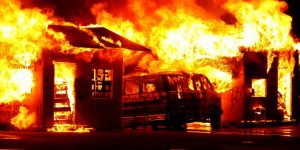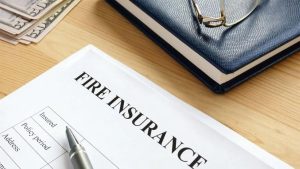Fire insurance is a form of homeowners and renters insurance that covers the costs associated with repairs or replacement after a fire-related catastrophe, as well as including protection for personal belongings and liability protection.
Before purchasing fire insurance, policyholders should become informed about its terms, conditions and exclusions so they can select an adequate policy to protect their property.
1. Know the Type of Coverage You Need
Your coverage requirements depend on the value and protection needs of your property. For instance, homeowners may elect to include “reinstatement” coverage as part of their policy to cover costs associated with rebuilding to current building codes after a fire occurs.
Homeowners in areas prone to wildfires may opt for additional coverage known as difference in conditions insurance, which provides additional protection against both natural and manmade disasters. These add-on policies are usually sold alongside standard fire insurance policies.
2. Know the Exclusions
Fire legal liability policies contain exclusions that could cause unpleasant surprises during claims processes. Being aware of these provisions can help property owners prepare for claims without being taken by surprise.
Damage caused by negligence on the owner’s part, such as failing to replace or maintain fire safety measures, may not be covered by insurance policies. Rust or corrosion of equipment typically is also not insured against.
Some properties located in high-risk areas may find it challenging to secure protection for wildfires through traditional policies, leading to property owners seeking alternative protection options. This exclusionary clause can be frustrating and lead them to search for more cost-effective options elsewhere.
3. Know the Limits
Fire damage often exceeds the limits of standard property policies, prompting homeowners and business owners alike to consider additional fire coverage for their assets.
Consider actual cash value and replacement cost coverages when selecting your policy, and check to make sure it includes loss of use coverage (which covers costs associated with moving your possessions in case of disaster). Understanding these components helps prevent costly claim denials while guaranteeing you receive protection that you need.
4. Know the Policy Period
Fire insurance is an essential policy for homeowners, renters, property investors and business owners who wish to safeguard against potential financial losses caused by fire accidents and operational disruption.
Policy Period The policy period refers to the period during which your policy will remain active and valid, beginning from its effective date and ending with its expiration date.
Insurance can be complex and sometimes hard to grasp, which is why our expert customer support is available 24/7 – to help make sense of it all better for you! Book a call now – there may only be limited slots left!
5. Know the Add-Ons
Fire insurance provides protection from losses caused by fires. It can often be included as part of homeowners or other types of property policies.
Dwelling fire insurance can be an ideal solution for owners of vacation homes or other non-standard properties who do not qualify for standard homeowners policies. Dwelling fire policies usually include personal property coverage to cover costs associated with replacing belongings; for additional peace of mind, coverage can even be upgraded to cover replacement cost costs.
6. Know the Cost
Standard homeowners insurance policies usually include fire coverage; however, if you live in an area prone to wildfires, your policy may exclude or require additional coverage. An extended replacement cost endorsement may provide increased dwelling and personal property coverage limits; however, your deductible must still be met.
Regularly update the valuation of your home and belongings to avoid underinsurance, and consider taking steps like installing smart home smoke detectors and purchasing fire extinguishers to save money on premiums.
7. Know the Claims Process
As part of their claims process, an insurance company reimburses policyholders based on an evaluation of their property and contents, taking into account issues like damage assessment, resale value evaluation and replacement cost costs.
Document your communications with your insurer to avoid delays and disputes; including dates, times, names of representatives. Documentation can also assist in restoration and repair processes.
Take steps to limit further losses after a fire incident by removing flammable items and disabling appliances with defective wiring, in order to speed up the settlement process and ensure fair compensation. This will expedite proceedings.
8. Know the Payment Options
Fire damage to homes and businesses alike can be extremely expensive. Fire insurance provides coverage to repair or replace property damaged in a fire incident as well as additional expenses such as temporary housing needs.
Most homeowners insurance policies provide fire coverage; however, you can purchase standalone fire insurance as well. Coverage may be difficult to secure in areas prone to wildfires.
To gain more knowledge about fire insurance, talk to an ALIGNED advocate. We specialize in tailoring customized risk and insurance management strategies/solutions specifically to our client needs.
9. Know the Policy Riders
Policy riders allow insurance policies to be customized specifically for an insured party’s needs, by adding or restricting coverage or raising premiums as desired.
Business owners should strongly consider adding commercial general liability coverage and/or a business interruption rider to their policy, in case a fire destroys their operation and results in losses of revenue. Such riders could help cover expenses related to interruption and may help cover losses that occur as a result.
Homeowners may opt to include a scheduled personal property rider for high-priced items and/or opt for a return of premium rider, which returns all paid premiums at the end of their policy term.
10. Know the Policy Limits
Property damage from fire can be devastating, yet homeowners can seek assistance through insurance policies which cover the cost of repairs or replacement.
Insurance companies determine how much to reimburse by reviewing the condition of damaged or destroyed items prior to disaster and using their actual cash value as compensation calculations.
Most fire policies provide additional living expense coverage to cover food and lodging if your home becomes inhabitable, so make sure you read your policy to fully understand its functioning.




